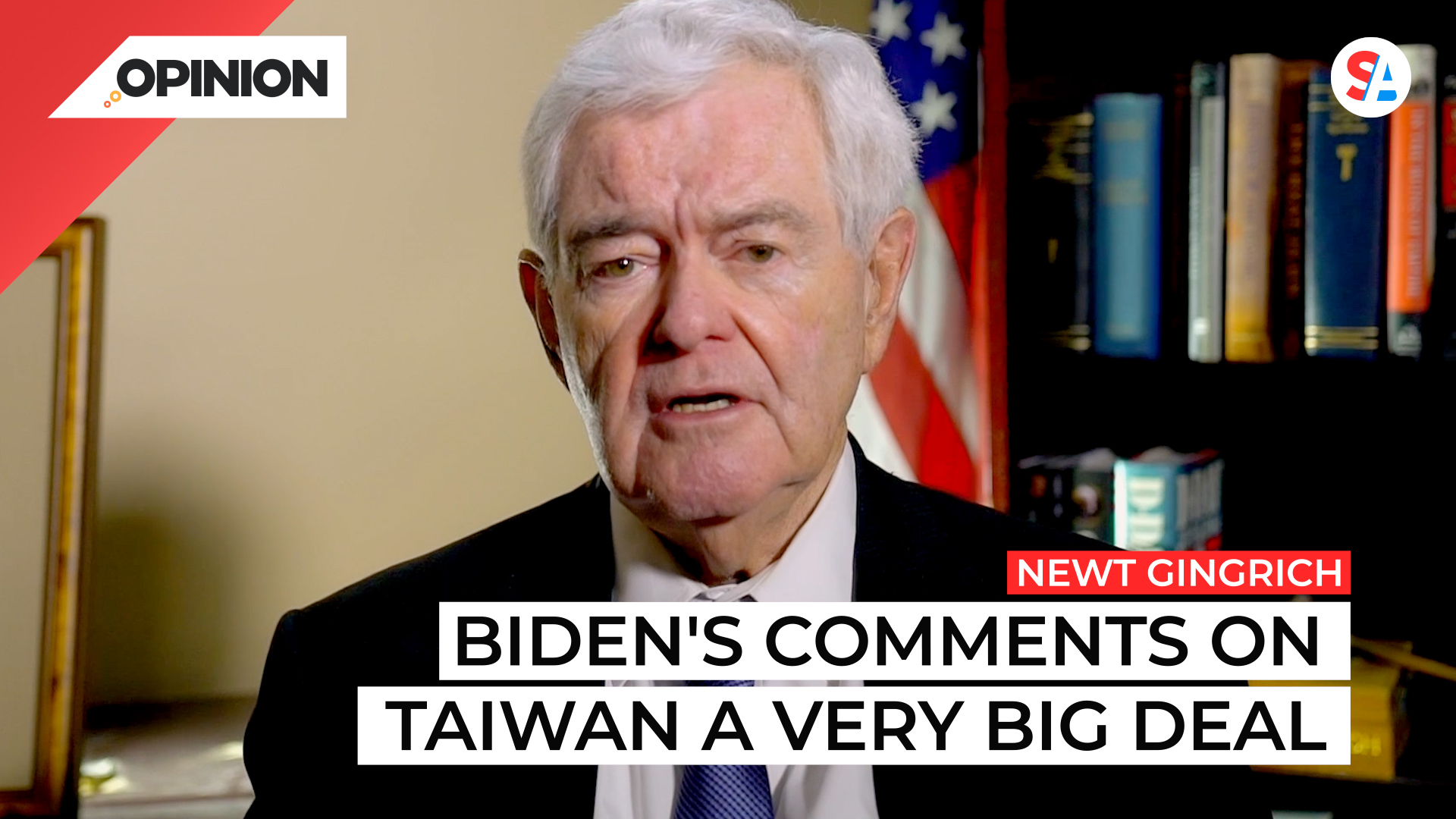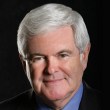
Commentary
-
Our commentary partners will help you reach your own conclusions on complex topics.
President Joe Biden’s comments in Asia on whether or not the United States would defend Taiwan were actually a very, very big deal at two different levels.
The first is his abrupt direct assertion, yes, we would defend Taiwan, is a real break with what has been a deliberate ambiguity going all the way back to 1972.
The United States has never recognized communist China’s right to Taiwan.
We have recognized that they assert that right, but we have not ever recognized that they in fact have that right.
On the other hand, we know that it’s an extraordinarily sensitive issue in Beijing, uh, where they regard Taiwan as the 19th province of China and refuse to contemplate Taiwan in any way being independent.
So we’ve played this delicate game now for 50 years in which we help arm the Taiwanese;
we certainly do a huge amount of business with them; they’re the largest computer chip producers in the world.
And we have protected them from communist China without actually directly doing anything that would lead to war.
Now President Biden, and I don’t know whether it was deliberate or just Joe Biden being Joe Biden, but by saying directly, yes, we would defend Taiwan if it was invaded, he did two things.
Uh, he communicated directly to Beijing that we are prepared to protect Taiwan’s independence. And second,
he set up a military challenge for the American military, which they currently are not prepared to follow through on.
Our Navy’s been shrinking, our, our capacity compared to the Chinese has been shrinking.
They would be a very serious competitor in the Taiwan straits. We would, we would probably defeat them in the end, but it would be a very painful, stunningly, expensive war. The biggest, uh, in some ways since Vietnam or Korea.
But secondly, as soon as Biden said, yes, we would defend Taiwan, the State Department began undermining him and the White House began undermining him saying, well, yes, didn’t really mean yes. And he really wasn’t changing our policy.
And they’d gotten him turned around enough that his last comments before leaving Asia were that we were retaining strategic ambiguity.
Now let me be very clear.
Strategic ambiguity is when your opponent isn’t sure what you would do.
Utter confusion is when you are not sure what you would do. And what we were faced with was not strategic ambiguity. We were faced with chaos.
If you’re Xi Jinping the Chinese dictator and you’re sitting in Beijing, what would you make of all this?
This is a president who was totally turned around in terms of Ukraine. Would we help them, not help them, et cetera.
That went on for weeks. Now, we’re, we’re seeing his own staff undermining within hours.
And the context for this is fascinating.
In January 1950, then Secretary of State Dean Acheson gave a speech at the national press club in which he described the American defensive perimeter in the Pacific as running from Japan through the Philippines.
He excluded both South Korea and Taiwan, which was then called Formosa. Now that’s in January of 1950. In June of 1950, the north Koreans attacked South Korea believing deeply in convincing Joseph Stalin, the dictator of Russia or the Soviet Union as it was then called, that the Americans would not intervene. So it was an enormous shock to the north Koreans.
When in fact we promptly responded and declared war and went to war.
They didn’t expect it and they didn’t expect it in part because the American secretary of state in the way he had written his speech had excluded both defending Taiwan and defending South Korea.
Now Biden has moved in the opposite direction we think, by saying, yes, he would defend Taiwan. On the other hand, the White House has come back and said, yes, didn’t really mean, yes.
So I think he probably marginally increased the danger that the Chinese who have considerable, I think, uh, lack of respect for the Biden presidency might decide to test him. And that would be an enormously dangerous thing for the whole world.
-
Why Musk and DOGE are 100% doing the right thing
President Trump appointed billionaire Elon Musk to lead what he calls the Department of Government Efficiency (DOGE) as a special government employee, overseeing major cuts and reforms across federal agencies. On Feb. 13, more than a dozen state attorneys general sued, arguing Musk wields unconstitutional powers without congressional oversight. The Trump administration has pushed back,… -
On Gaza and Ukraine, Trump’s answers are better than none
America’s allies in Europe expressed concerns after U.S. Secretary of Defense Pete Hegseth ruled out the possibility of Ukraine joining NATO and broadcasted an eagerness to end the Russia-Ukraine war on terms that they say favor Moscow. NATO allies, including France and the United Kingdom, rejected Hegseth’s position, asserting that Ukraine must and will join… -
My White House visit left me more hopeful than ever
On Feb. 4, President Donald Trump and Israeli Prime Minister Benjamin Netanyahu held a joint press conference in the East Room of the White House. The event — covering the U.S. proposal for Gaza, Iran’s nuclear ambitions and Middle East peace — drew numerous administration officials and packed the room. Trump also spoke from the… -
Trump moves at breakneck speed to enact bold changes
President Donald Trump has been in office for less than three weeks, but he’s already making his mark on Washington at an unprecedented pace. He is boldly reshaping the federal government in ways that have excited some of his supporters but which experts warn are illegal, dangerous and unconstitutional. He also recently met with House… -
Breaking down Trump’s incredible inaugural address
President Donald Trump sought to strike an uplifting tone in his inaugural address on Jan. 20, 2025, proclaiming that America would soon enter “a golden age” and that God had spared his life to make America great. Supporters viewed the inauguration as a triumph or a vindication, while critics perceived it as a dark omen…
Latest Opinions
-
 Getty Images
Getty Images
Trump admin. asks federal workers to detail weekly accomplishments, again
-
 Getty Images
Getty Images
Military members with gender dysphoria to be processed for separation: DOD
-
 Getty Images
Getty Images
Zelenskyy says Trump not owed an apology after White House dustup
-
 Getty Images
Getty Images
NCAA Tournament: Which men’s teams are on ‘bubble watch’?
-
 Getty Images
Getty Images
NFL scouting combine: How much faster can these players run?
Popular Opinions
-
In addition to the facts, we believe it’s vital to hear perspectives from all sides of the political spectrum.






